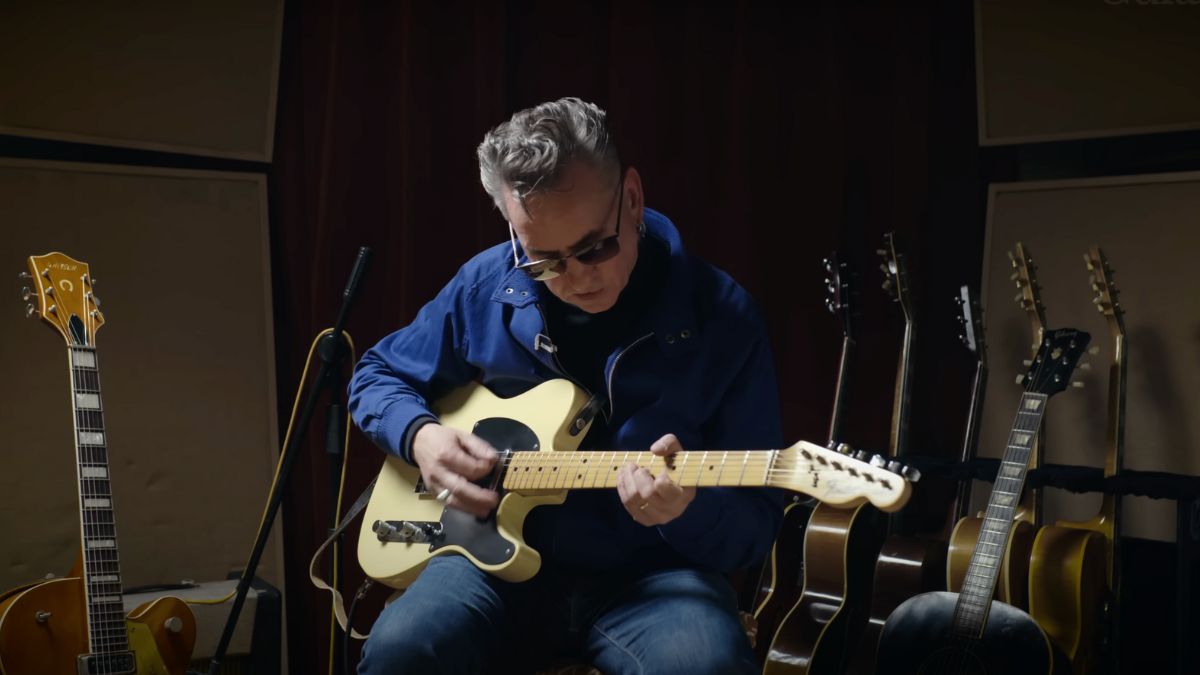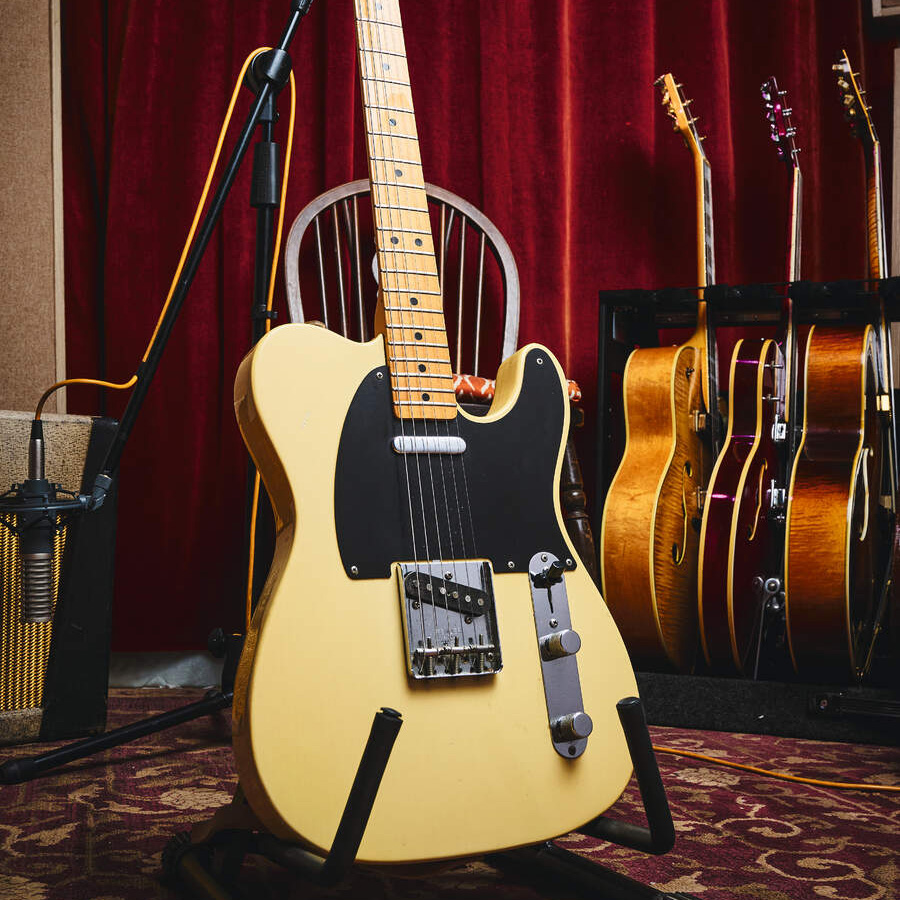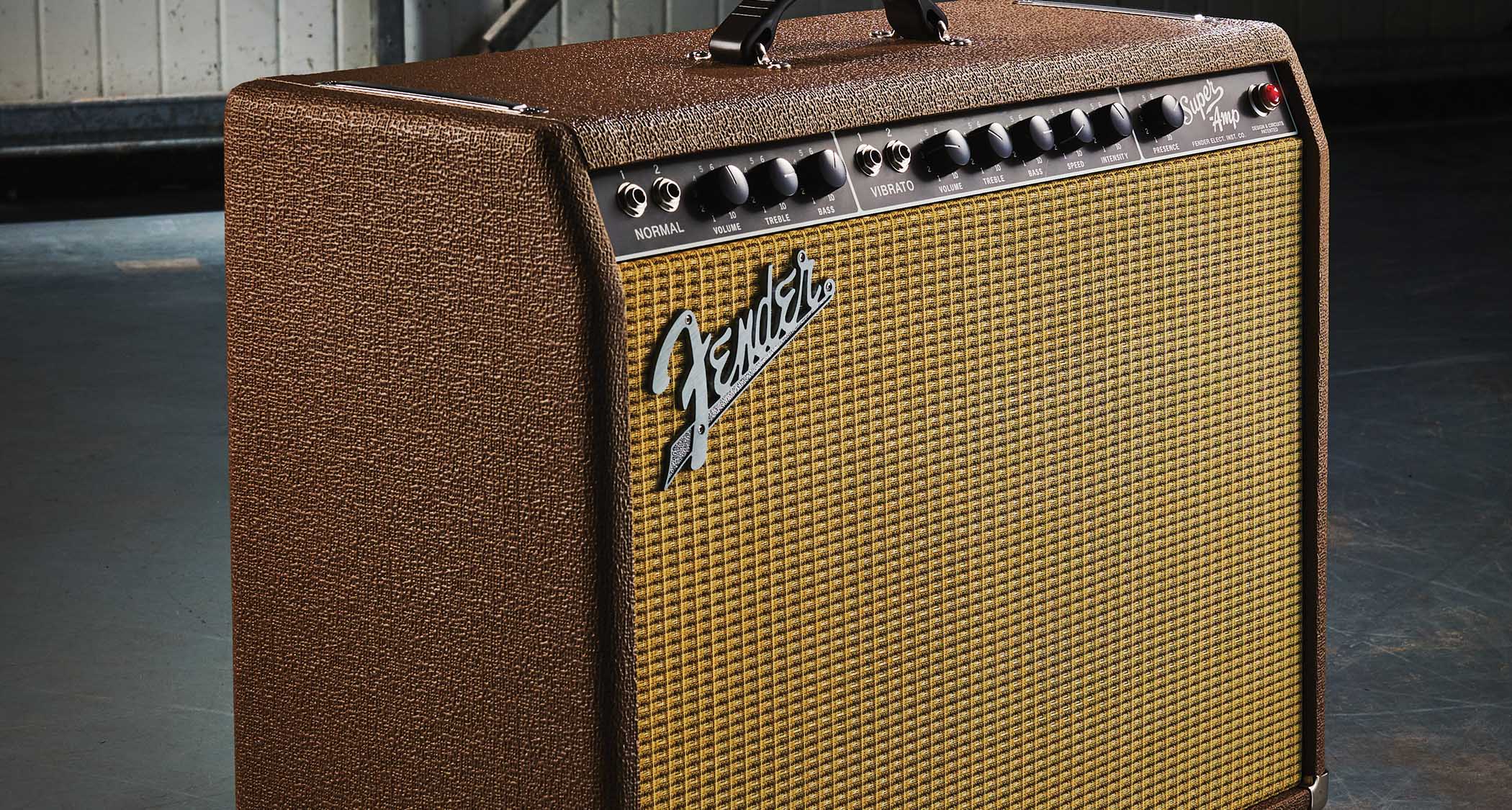“It was in quite a parlous state… Scott’s blood was on there – his physical remnants were on the guitar”: Richard Hawley on how he came to own Scott Walker’s Fender Telecaster
Hawley recalls the Pulp recording session that served as the catalyst for his friendship with the late Walker

All the latest guitar news, interviews, lessons, reviews, deals and more, direct to your inbox!
You are now subscribed
Your newsletter sign-up was successful
Richard Hawley's guitars are as inextricably linked to time and memory as his songs. One of his more recent acquisitions, a mid-'70s Telecaster, is the epitome of this, formerly belonging to esteemed experimental artist and producer Scott Walker.
In a new interview with Guitarist, Hawley revealed that before he passed away in 2019, Walker had personally asked his daughter Lee to give Hawley his guitar.
“Scott and I were friends, we used to play darts and sup Guinness together,” he recalls. “Anyway, Lee, his daughter, said one of last requests was to [feigns a parody of Scott Walker’s drawl] ‘Give that tosser Hawley one of my guitars...’ and this is it.”
“It arrived three days into recording the new record [In This City They Call You Love] and I must say it was in quite a parlous state,” he continues. “It had been unplayed and my long-suffering guitar tech, Gordon White, who is a genius, [took on the job of fixing it up] and the hardest decision was to actually do anything with it at all.
“Because basically, [traces of] Scott’s blood was on there – his physical remnants were on the guitar. But Gordon said, ‘Fuck it, it’s got to be playable,’ and he fixed it all and made a beautiful thing and it was very, very close to me recording the new record; I recorded all the mad shit on it.”

Hawley was Pulp's touring guitarist when he met Walker while the latter was producing Pulp's 2001 seventh album, We Love Life. Their friendship blossomed after a somewhat rocky start, as Hawley turned up late to a session, irritating the punctual Walker.
"We were starting work at the crack of noon. But next door to the studio was a record shop. And I saw the sign, it was like, last day, closing down. So anyway, I dived in there, and it was like 10 o'clock in the morning. I ended up with a massive pile of records, and I looked at the clock, and I'm gonna be late.
All the latest guitar news, interviews, lessons, reviews, deals and more, direct to your inbox!
“So I turned up at the studio, and it was like, 20 past 12. And Scott was at the mixing desk with his baseball cap pulled down. Jarvis [Cocker, Pulp's vocalist and guitarist] was there. And I think Steve [Mackey, Pulp's then bassist] and Nick [Banks, Pulp's drummer], and Scott said ‘You're late.’ This is not gonna go well.
“Jarvis said, ‘Why [are] you late?’ ‘I've been buying these fucking records at the record store next door.’ And then Scott kind of just went, ‘Okay. Let's look at what you got.’ And then he went through [them]. And he went, ‘Oh, wow.’
“And he said, ‘Hey, Richard, y'all shake Eddie Cochran's hand. I played with Eddie when I was 14 years old. You want to shake his hand through me, Scott Walker. There you go.’ And his mood changed, and he realized I cared about music and all that.”
For more from Richard Hawley, plus new interviews with Samantha Fish and Christone ‘Kingfish’ Ingram, pick up issue 514 of Guitarist at Magazines Direct.
Janelle is a staff writer at GuitarWorld.com. After a long stint in classical music, Janelle discovered the joys of playing guitar in dingy venues at the age of 13 and has never looked back. Janelle has written extensively about the intersection of music and technology, and how this is shaping the future of the music industry. She also had the pleasure of interviewing Dream Wife, K.Flay, Yīn Yīn, and Black Honey, among others. When she's not writing, you'll find her creating layers of delicious audio lasagna with her art-rock/psych-punk band ĠENN.


